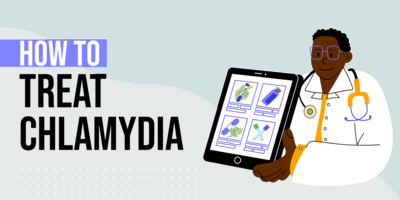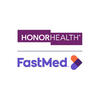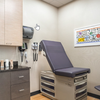
How to Treat Chlamydia
Chlamydia is a bacterial infection that is spread by sexual contact, according to the CDC. It is one of the most...
Read moreHelp patients book appointments with you on Solv. It's free!
20 instant-book locations







Help patients book appointments with you on Solv. It's free!
Anyone who is at risk of contracting hepatitis should consider getting tested. This includes individuals who have been in close contact with someone who has the disease, those who have engaged in unprotected sex, and those who have used intravenous drugs. Additionally, healthcare workers, travelers to areas with high rates of hepatitis, and people with certain medical conditions may also be at risk.
Getting tested for hepatitis is crucial as it allows for early detection and treatment, potentially preventing serious liver damage. According to the CDC, chronic hepatitis can lead to liver cirrhosis, liver cancer, and even death if left untreated. Moreover, knowing your status can help prevent the spread of the disease to others.
There are several urgent care and walk-in clinics in Phoenix that offer hepatitis testing. For example, Rume Health, with a 4.5 rating and short wait times, offers testing services. You can book same-day and next-day testing appointments at these clinics through Solv’s website and mobile app.
Primary care providers in Phoenix also offer hepatitis testing. These providers can often provide comprehensive care, including testing, diagnosis, and treatment.
Free STD testing is available at various community health centers in Phoenix. These centers provide services to individuals regardless of their ability to pay.
At-home testing kits for hepatitis are also available. These kits allow for privacy and convenience, as you can take the test at your own time and receive the results via mail or online.
Phoenix, located in Maricopa County, has seen a steady number of hepatitis cases over the years. According to the CDC, the rate of hepatitis in Maricopa County is comparable to the national average. However, it is important to note that the actual number of cases may be higher due to underreporting and undiagnosed infections.
Risk factors for hepatitis in Phoenix include unprotected sex, drug use, and close contact with an infected person. Additionally, certain populations, such as men who have sex with men, people with HIV, and individuals who have been incarcerated, are at a higher risk.
In addition to hepatitis, other STDs such as gonorrhea, chlamydia, HIV, and syphilis are also prevalent in Phoenix. The rates of these STDs are similar to or slightly higher than the national average, according to the CDC. It is important for individuals at risk to get tested for these diseases as well, as they can often occur together.
Solv has strict sourcing guidelines and relies on peer-reviewed studies, academic research institutions, and medical associations. We avoid using tertiary references.
Annual Wellness Exam in Phoenix
Chickenpox Vaccine in Phoenix
DOT Exam in Phoenix
Ear Wax Removal in Phoenix
Eye Exam in Phoenix
Flu Shot in Phoenix
Hepatitis Vaccine in Phoenix
Measles Vaccine (MMR) in Phoenix
Pap Smear in Phoenix
Physical Exam in Phoenix
Shingles Vaccine in Phoenix
Sinus Infection Treatment in Phoenix
Sports Physicals in Phoenix
Tetanus Shot in Phoenix
Typhoid Vaccine in Phoenix
Well-Woman Exam in Phoenix
Yellow Fever Vaccine in Phoenix
A1C Test in Phoenix
CMP Test in Phoenix
Chlamydia Test in Phoenix
Diabetes Test in Phoenix
Gonorrhea test in Phoenix
H Pylori Test in Phoenix
HIV Test in Phoenix
Hepatitis test in Phoenix
Herpes Test in Phoenix
Mono Test in Phoenix
Pregnancy Test in Phoenix
STD Testing in Phoenix
Strep Test in Phoenix
Syphilis test in Phoenix
TB Test in Phoenix
Thyroid Test in Phoenix
Trichomonas Test in Phoenix
Vitamin D Test in Phoenix
Tips, advice, news—your resource to stay healthy and safe while improving your experience with healthcare providers when you need them.